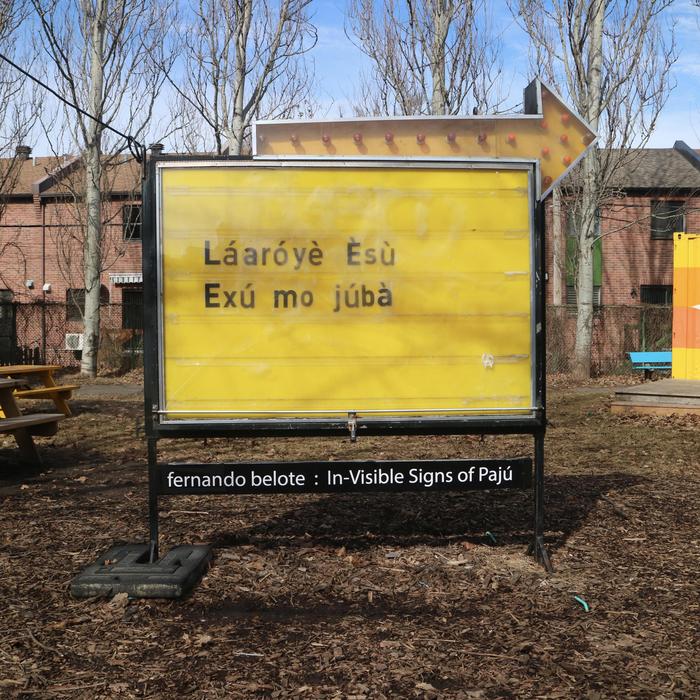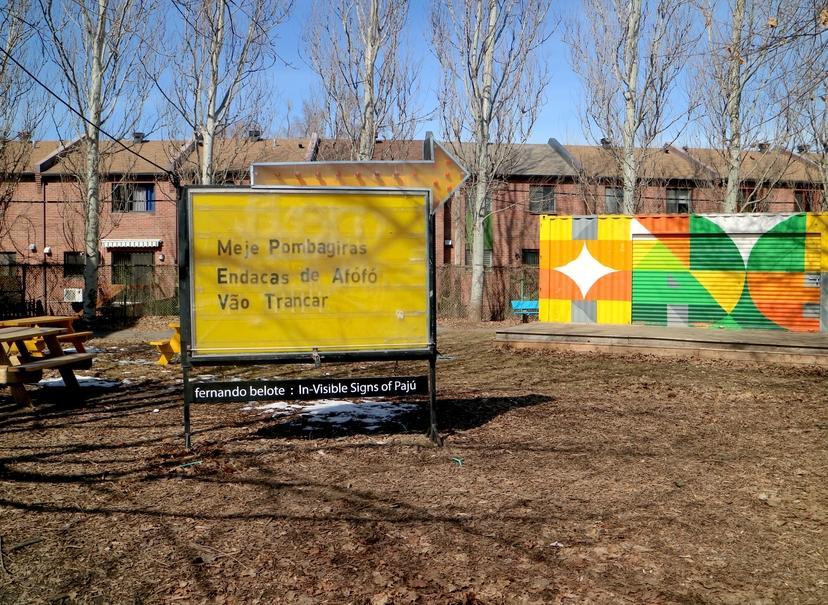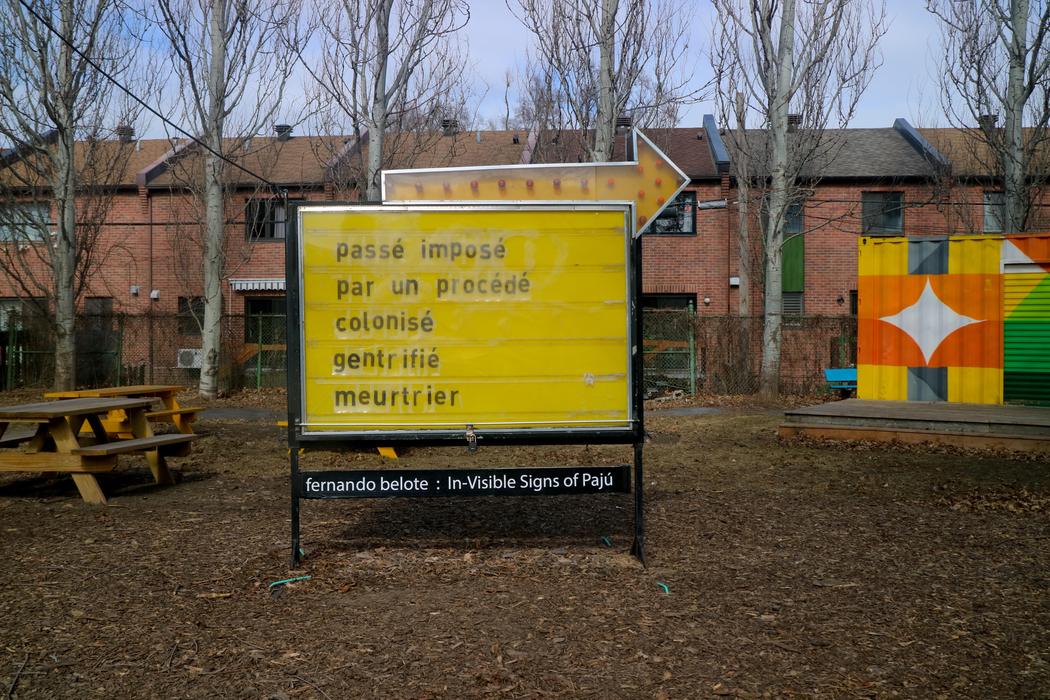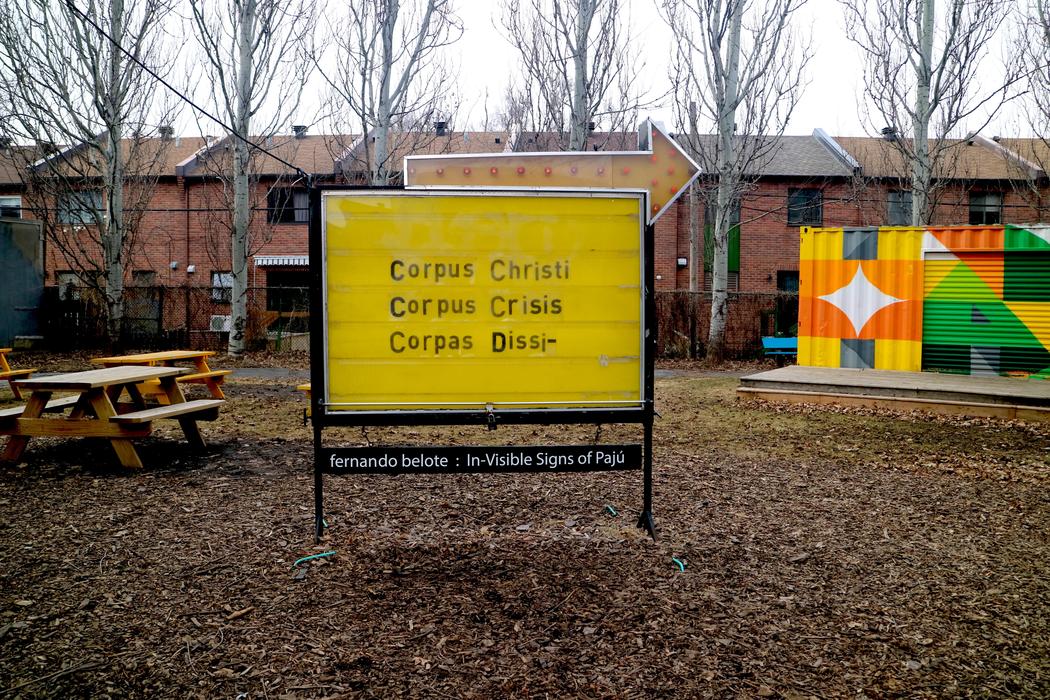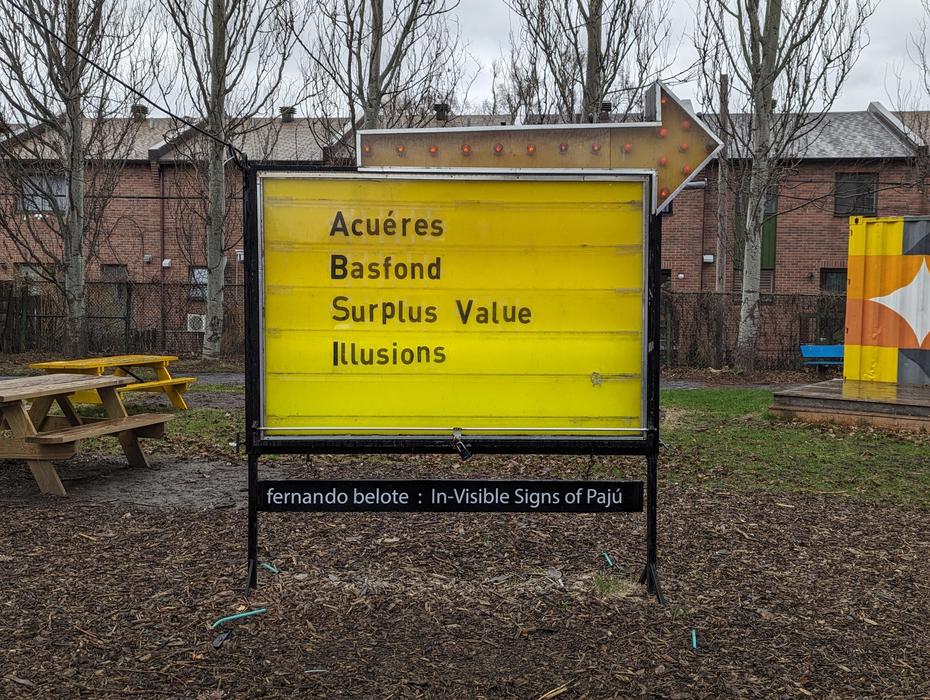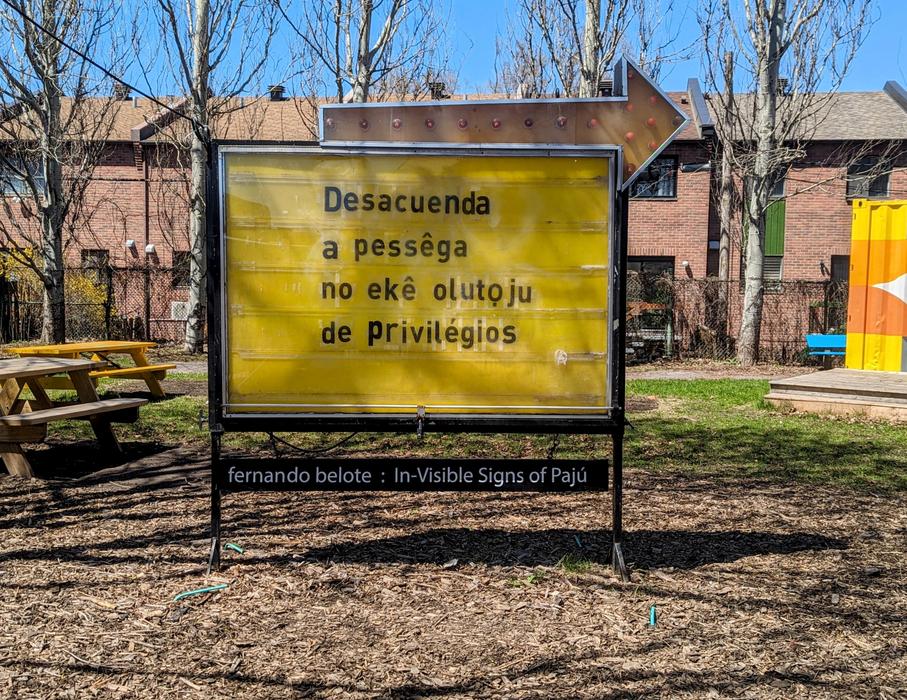Programming
fernando belote
In-Visible Signs of Pajú
For his public writing project, fernando belote will express himself in P(B)ajubá, the queer dialect used by dissidents living in the stolen territory known as Brazil.
View more
For this cycle of public writing, fernando belote will express in P(B)ajubá, the LGBTQIA+ dialect used by dissidents living in the stolen territory known as Brazil. Pajú (a contraction of Pajubá), is the cultural heritage passed on by diasporic Nagô-Yoruba communities (from West Africa) to transvestigêneres (trans and/or non-binary) communities. The corpus of 12 poems displayed on our illuminated sign in Saint-Cunégonde Park will explore this linguistic phenomenon to reveal areas of community resilience in resistance to cis- heteronormative impositions. The multilingual poems have been deliberately left untranslated by the artist to preserve the secrecy of embodied queer knowledge. To compose a political repertoire, the artist has focused on a critique of the "CIS-thème" which has been modulated through linguistic spontaneity and wordplay. The audience is thus invited to embrace the intelligible and participate in the metaphysical presence that precedes the utterance of words.
fernando belote
fernando belote (Fern) is a bixa*/queer multidisciplinary artist and president of DC-Art Indisciplinaire, artist run centre which supports artists from diverse abilities. Fern’s conceptual practice is informed by personal experiences as a neurodivergent individual and survivor of domestic violence. Their work challenges capitalism's dehumanizing effects and circumscribes ethical perspectives, such as beesha ethics, contra-colonial views, and anti-fascist resistance. The artist currently collaborates on research exploring P(B)ajubá manifestations to disrupt cis-heteronormativity through the bias language. The objective is to confront colonial syntax, breaking down its pervasive influences and oppressive structures within communities.
